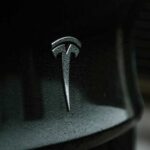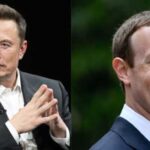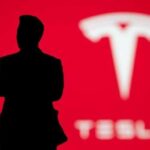Elon Musk’s Bizarre Political Outbursts Have Turned Off Tesla’s Core Buyers, Data Shows
The post Elon Musk’s Bizarre Political Outbursts Have Turned Off Tesla’s Core Buyers, Data Shows appeared first on Healthy Holistic Living.
In the vast pantheon of modern visionaries, few names command the same blend of reverence and controversy as Elon Musk. From pioneering electric vehicles to charting humanity’s course among the stars, Musk’s trajectory has been nothing short of meteoric. Yet, amidst the awe-inspiring spectacle of his technological feats lies a narrative as complex as it is captivating – the tale of Musk’s evolving entanglement with the tumultuous world of politics.
For years, Musk stood as the quintessential embodiment of the 21st-century entrepreneur, a beacon of innovation transcending the boundaries of possibility. His brainchild, Tesla, not only revolutionized the automotive industry but symbolized a bold step towards a sustainable future. However, as Tesla’s star rose, so too did Musk’s propensity for stirring the pot – his Twitter feed evolving into a battleground for fiery debates and headline-grabbing antics.
The watershed moment arrived when Musk, with characteristic audacity, waded into the treacherous waters of politics. No longer content with merely shaping the technological landscape, he set his sights on reshaping the political discourse itself. From endorsing political candidates to engaging in high-profile clashes with government agencies, Musk’s political odyssey took center stage, captivating audiences and sparking intense debate. Yet, beneath the surface spectacle lies a deeper narrative, one that raises probing questions about the intersection of innovation, ideology, and influence in the digital age.
Elon Musk’s Political Pivot
Elon Musk’s entry into the political arena has marked a significant shift for Tesla, traditionally perceived as a progressive brand due to its focus on sustainable energy. Musk’s outspoken political views, including controversial statements and endorsements, have not only raised eyebrows but have also started to reshape the demographics of Tesla’s customer base.
Initially, Tesla’s buyers skewed significantly towards the Democratic side, reflecting the brand’s alignment with environmental and progressive values. However, recent surveys and market analysis show a stark transformation. Following Musk’s visible support for right-leaning political views and public statements on social platforms, there has been a noted decline in favorability among Democratic customers, alongside an increase in Republican buyers. For instance, after Musk encouraged his followers to vote Republican, there was a measurable dip in his popularity among Democrats, while favorability among Republicans saw an increase.
This political realignment is reflective of broader national trends where consumer loyalty can often intersect with personal and political beliefs, impacting brand perception. Tesla, under Musk’s leadership, appears to be evolving from a universally appealing brand into one that is more politically polarized, a risky move in the volatile arena of public opinion and market dynamics.
This transformation raises questions about the long-term implications for Tesla’s market position and brand identity, especially as the company strives to maintain its lead in the competitive electric vehicle market.
Impact on Tesla’s Core Customer Base
The political stir caused by Elon Musk has not only been a matter of public discussion but has also tangibly affected Tesla’s core customer demographics. Traditionally, Tesla has attracted a customer base that leans towards Democratic values, particularly due to the company’s emphasis on sustainability and green technology. However, recent data indicates a significant shift in this pattern.
According to a study conducted by Strategic Vision, the percentage of Democrats purchasing Teslas saw a sharp decline of over 60% during the periods of October and November last year. This decline coincided with Musk’s controversial remarks and political endorsements which did not sit well with Tesla’s traditionally left-leaning customer base. In contrast, there was a notable increase in purchases among Republican buyers, suggesting that Musk’s political alignment might be attracting a new segment of customers.
Further reinforcing this trend, vehicle registration data from California showed a 15% drop in new Tesla registrations in the fourth quarter of 2023, a stark contrast to the 43% increase in the same period the previous year. This suggests that Musk’s political actions might not only be reshaping who buys Teslas but also impacting the overall sales performance in traditionally strong markets.
These changes highlight the growing politicization of brand loyalty in today’s market dynamics, where the CEO’s public persona can directly affect consumer behavior. For Tesla, a company that has championed progressive ideals through its products, the shift in its customer base presents both a challenge and an opportunity to redefine its market strategy in a politically polarized environment.
Economic and Brand Impact
The repercussions of Elon Musk’s political statements extend beyond shifting demographics to affect Tesla’s economic performance and brand perception significantly. The brand once celebrated for its innovation and environmental focus, now faces a potential crisis of identity and market appeal due to its CEO’s divisive rhetoric.
Economically, the shift in customer base has led to fluctuating sales figures. In California, a key market for Tesla, new vehicle registrations fell by 15% in the last quarter of 2023 compared to a significant increase in the previous year. This downturn is indicative of the broader market’s reaction to Musk’s political engagements and the accompanying public controversies.
The brand impact is equally profound. Tesla’s image as a forward-thinking, progressive company is being reconsidered by consumers who weigh corporate leadership’s political stances as part of their purchasing decisions. Surveys and polls indicate a growing perception of Tesla as a partisan brand, which could alienate a portion of its potential customer base. A survey by Morning Consult, for instance, highlighted a stark decline in Tesla’s favorability among Democrats, falling to an average of 10.4% favorability in November from 24.8% in October, while favorability among Republicans increased.
These dynamics are crucial as they underscore a potentially permanent shift in Tesla’s market positioning and brand identity. The company’s ability to navigate these troubled waters will be critical to maintaining its market leader status in an increasingly competitive electric vehicle sector. The long-term effects of Musk’s political discourse could shape Tesla’s strategies and its role in the future of sustainable transportation.
The Reaction: Public and Political
Elon Musk’s political statements have not only influenced Tesla’s sales and customer demographics but have also triggered a broader public and political reaction that has implications for the brand’s future. These reactions vary widely, from staunch support to intense criticism, reflecting the polarized nature of current political discourse.
Public reaction has been mixed, with significant backlash particularly evident on social media platforms where Musk has a substantial presence. This backlash is not just from individual consumers but also from influential public figures and organizations that have historically supported green technologies and progressive causes. This shift is reflected in the brand’s decreasing popularity among Democrats and those who align with liberal ideologies, who may view Musk’s political comments as antithetical to the values associated with environmental advocacy.
Politically, Musk’s actions have stoked discussions about the role of business leaders in political discourse. While some commend his boldness in expressing personal political beliefs, others argue that such statements from the head of a major corporation can lead to division and brand polarization. This is evident from the varied reactions following his endorsement of specific political parties and figures, which have led to a reevaluation of Tesla’s brand neutrality and its impact on consumer choices.
These reactions highlight the delicate balance that companies like Tesla must maintain while navigating the intersection of business operations and political expressions. The extent to which Tesla can manage this balance may significantly influence its public image and acceptance in various political and demographic groups moving forward.
The post Elon Musk’s Bizarre Political Outbursts Have Turned Off Tesla’s Core Buyers, Data Shows appeared first on Healthy Holistic Living.












